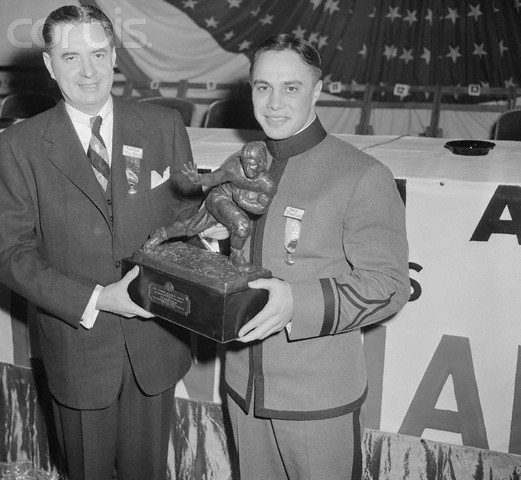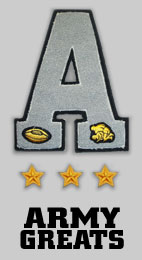
Home
Classes
Coaches
Army Greats
Army Lore
Teams
Of Interest...
About
Submissions
Contact
Newsletter
Credits
Click on small photos
 Cadet will not Lie, Cheat, Steal, or Tolerate Those Who Do Cadet will not Lie, Cheat, Steal, or Tolerate Those Who Do
 USMA at West Point USMA at West Point
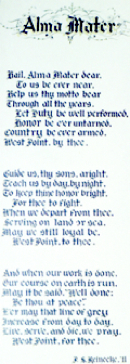 We have changed the wording of our Alma Mater to reflect the fact that our Women Graduates have also given their lives serving this Nation.
We have changed the wording of our Alma Mater to reflect the fact that our Women Graduates have also given their lives serving this Nation.
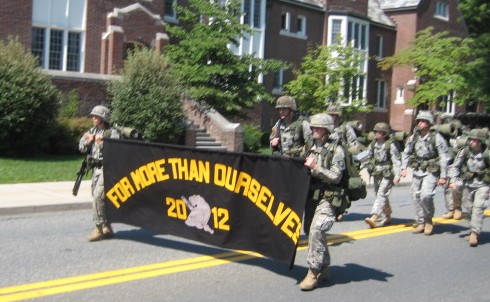 ----- Class of 2012 Motto ------ - "For More Than Ourselves" -Thank you Class of 2012 - for the Honor of Marching with you
The Class of 62 - Can Do ----- Class of 2012 Motto ------ - "For More Than Ourselves" -Thank you Class of 2012 - for the Honor of Marching with you
The Class of 62 - Can Do
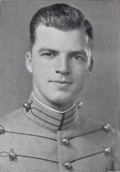 Remember - The Soldiers you will lead Always Come First Remember - The Soldiers you will lead Always Come First
 Motto -- Duty Honor Country Motto -- Duty Honor Country
 The Cadets of West Point
The Cadets of West Point
 They played perhaps Army's Greatest Game. They were the Team that Gave The Most They played perhaps Army's Greatest Game. They were the Team that Gave The Most
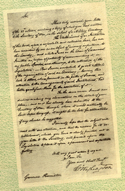 Washington's Letter recommending the establishment of the Academy and the History of West Point
Washington's Letter recommending the establishment of the Academy and the History of West Point
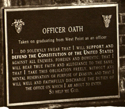
The Oaths We Take
 West Points Medal of Honor Winners West Points Medal of Honor Winners
 Jefferson Hall - the Academy's new Library.
Jefferson Hall - the Academy's new Library.
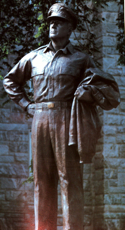 Douglas MacArthur
Douglas MacArthur
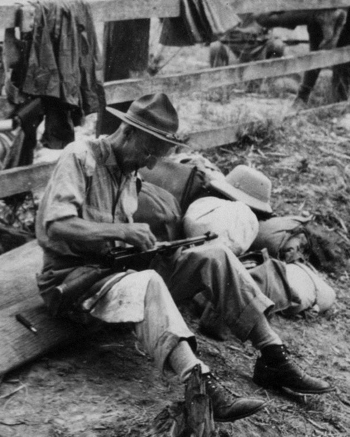
Vinegar Joe Stilwell cleaning his Thompson -The Walkout -Burma 1942
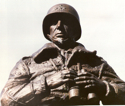 George Patton
George Patton
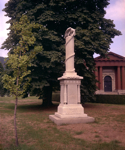 The Monuments of West Point
The Monuments of West Point
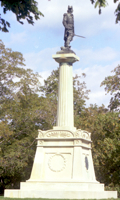 Kosciuszko Monument - Guarding the Hudson ensuring there is no passage of British Man of War
Kosciuszko Monument - Guarding the Hudson ensuring there is no passage of British Man of War
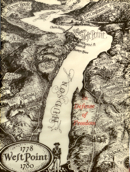 Forts of the Hudson
Forts of the Hudson
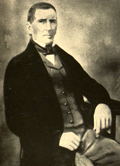
So we'll sing our reminiscences of Benny Havens, Oh!
 Academic Excellence Academic Excellence
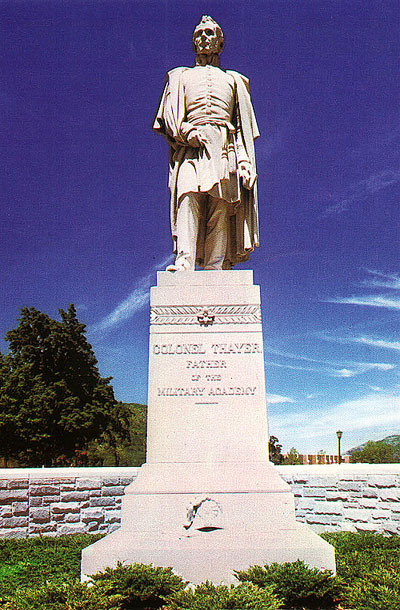 ---- Colonel Thayer ---- Colonel Thayer
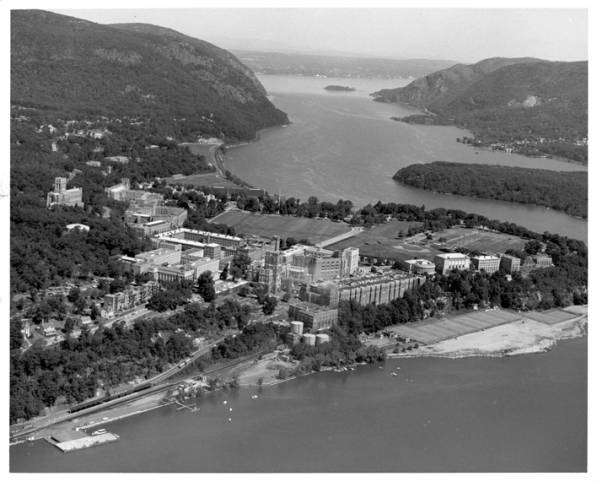 West Point West Point
 Trophy Point Trophy Point
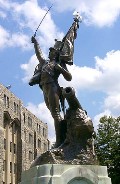 L'Ecole Polytechnique Monument, or The French Monument by Cadets L'Ecole Polytechnique Monument, or The French Monument by Cadets
 Superintendent's Quarters viewed from Thayer Road Superintendent's Quarters viewed from Thayer Road
 Superintendant was not Happy
Black '57
Superintendant was not Happy
Black '57
 Home of the Dean Home of the Dean
 Quarters 104 Quarters 104
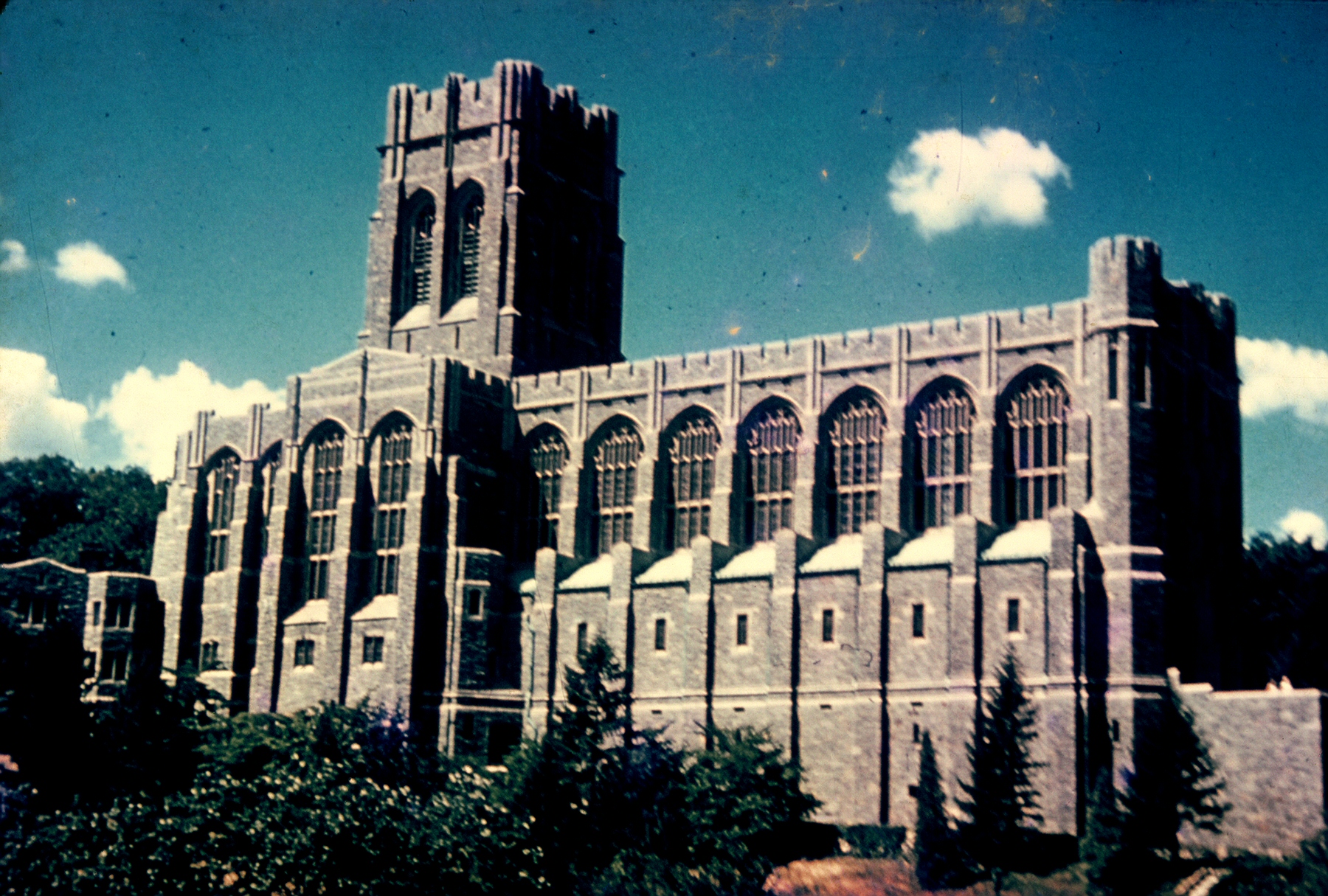 Cadet Chapel Cadet Chapel
 Michie Stadium Michie Stadium
 Arvin Gym Arvin Gym
 Kimsey Athletic Center Kimsey Athletic Center
 Holleder Center Holleder Center
 Washington Monument Washington Monument
 United States Military Academy Band United States Military Academy Band
 Cadet Barracks Cadet Barracks
 Rugby Complex Rugby Complex
 Great Chain Great Chain
 Plain looking toward Washington Hall Plain looking toward Washington Hall
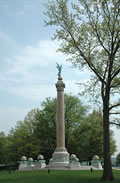 Battle Monument Battle Monument
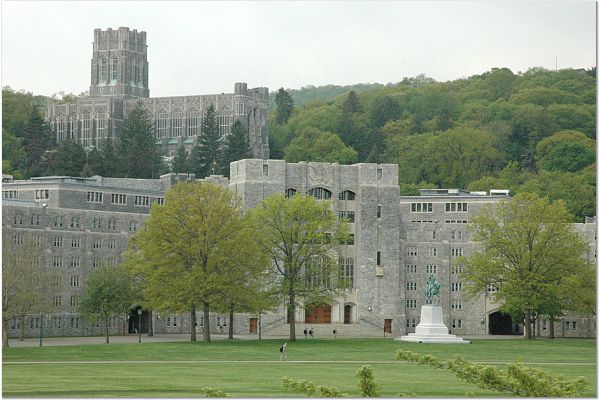 Washington Hall with Cadet Chapel on rocks above. Washington Hall with Cadet Chapel on rocks above.
 Hudson River Hudson River
 Captured Trophies Captured Trophies
 Battle Monument Battle Monument
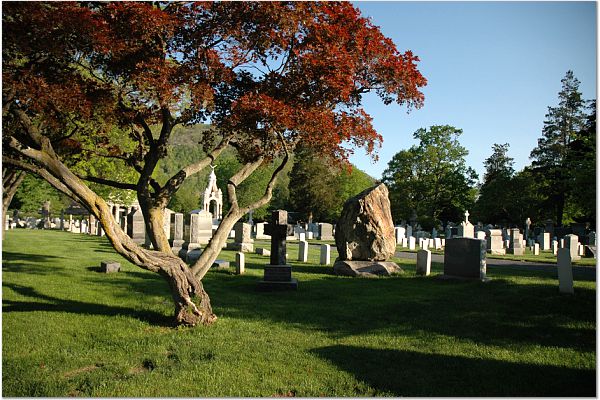 West Point Cemetery West Point Cemetery
 Plain Plain
 Cost to this Nation of Differing Views Cost to this Nation of Differing Views
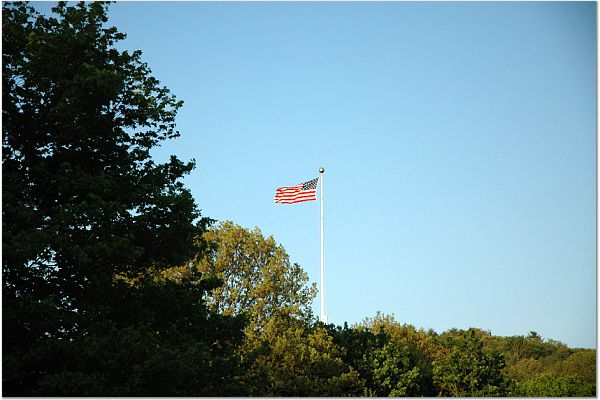 Trophy Point -- Our Flag Trophy Point -- Our Flag
 Corps of Cadets Formed in Companies early 1960s Corps of Cadets Formed in Companies early 1960s
 Corps of Cadets Formed in Companies early 1960s Corps of Cadets Formed in Companies early 1960s
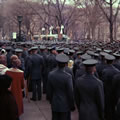 Sending the Army Team off to Beat Navy Sending the Army Team off to Beat Navy
 Army Mule Army Mule
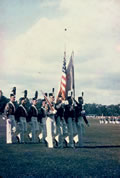 Color Guard Color Guard
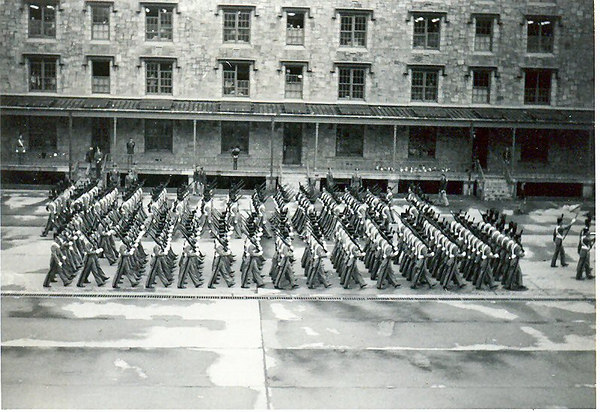
Band Box Review Early 1950's in Central Area
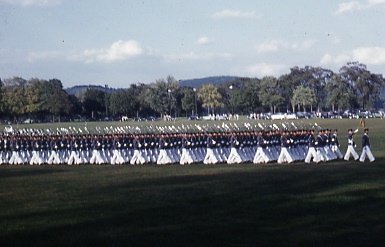 Battalion Mass Early 50's Battalion Mass Early 50's
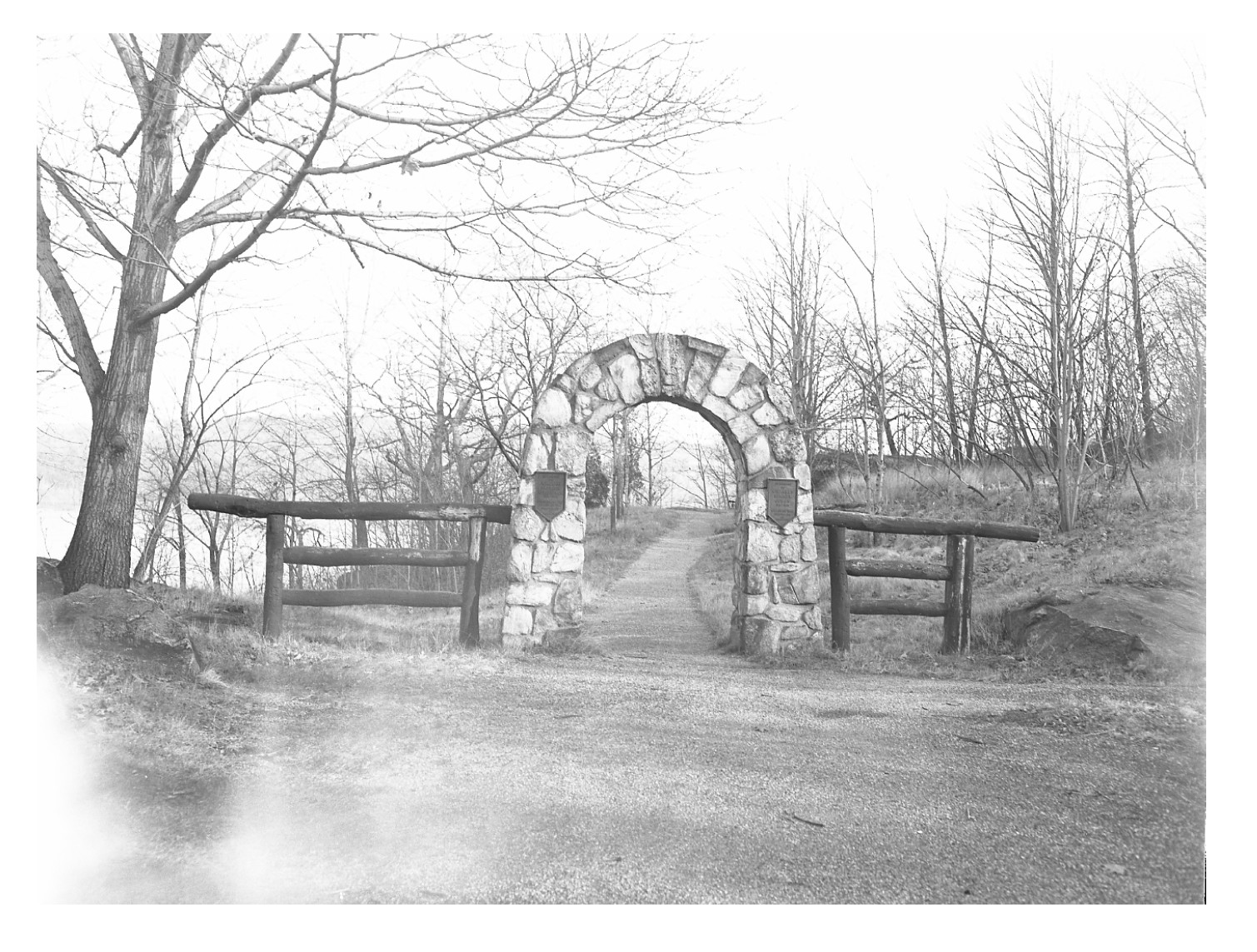 Flirtation Walk Flirtation Walk
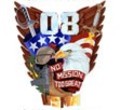
 Arvin Gym Arvin Gym
Duty Honor Country
 Cadet will not Lie, Cheat, Steal, or Tolerate Those Who Do Cadet will not Lie, Cheat, Steal, or Tolerate Those Who Do
 Motto -- Duty Honor Country Motto -- Duty Honor Country
 Remember - The Soldiers you will lead Always Come First Remember - The Soldiers you will lead Always Come First

 Academic Excellence Academic Excellence
 --They played perhaps Army's Greatest Game. They were the Team that Gave The Most --They played perhaps Army's Greatest Game. They were the Team that Gave The Most
 Colonel Thayer Colonel Thayer
 West Point mid 60's West Point mid 60's
 Trophy Point Trophy Point
 L'Ecole Polytechnique Monument, or The French Monument by Cadets L'Ecole Polytechnique Monument, or The French Monument by Cadets
 Superintendent's Quarters viewed from Thayer Road Superintendent's Quarters viewed from Thayer Road
 Cadet Chapel Cadet Chapel
 Michie Stadium Michie Stadium
 Arvin Gym Arvin Gym
 Kimsey Athletic Center Kimsey Athletic Center
 Holleder Center Holleder Center
 Washington Monument Washington Monument
 United States Military Academy Band United States Military Academy Band
 Barracks Barracks
 Rugby Complex Rugby Complex
 Great Chain Great Chain
 Plain looking toward Washington Hall Plain looking toward Washington Hall
 Battle Monument Battle Monument
 Washington Hall with Cadet Chapel on rocks above. Washington Hall with Cadet Chapel on rocks above.
 Hudson River Hudson River
 Captured Trophies Captured Trophies
 Battle Monument Battle Monument
 West Point Cemetery West Point Cemetery
 Plain Plain
 Cost to this Nation of Differing Views Cost to this Nation of Differing Views
 Trophy Point -- Our Flag Trophy Point -- Our Flag
 Corps of Cadets Formed in Companies early 1960s Corps of Cadets Formed in Companies early 1960s
 Corps of Cadets Formed in Companies early 1960s Corps of Cadets Formed in Companies early 1960s
 Sending the Army Team off to Beat Navy Sending the Army Team off to Beat Navy
 Army Mule Army Mule
 Color Guard Color Guard

Band Box Review Early 1950's in Central Area
 Battalion Mass Early 50's Battalion Mass Early 50's
 Flirtation Walk Flirtation Walk
 Cadet will not Lie, Cheat, Steal, or Tolerate Those Who Do Cadet will not Lie, Cheat, Steal, or Tolerate Those Who Do
 Motto -- Duty Honor Country Motto -- Duty Honor Country
 Remember - The Soldiers you will lead Always Come First Remember - The Soldiers you will lead Always Come First
 Academic Excellence Academic Excellence
 They played perhaps Army's Greatest Game. They were the Team that Gave The Most They played perhaps Army's Greatest Game. They were the Team that Gave The Most
 Colonel Thayer Colonel Thayer
 West Point mid 60's West Point mid 60's
 Trophy Point Trophy Point
 L'Ecole Polytechnique Monument, or The French Monument by Cadets L'Ecole Polytechnique Monument, or The French Monument by Cadets
 Superintendent's Quarters viewed from Thayer Road Superintendent's Quarters viewed from Thayer Road
 Cadet Chapel Cadet Chapel
 Michie Stadium Michie Stadium
 Arvin Gym Arvin Gym
 Kimsey Athletic Center Kimsey Athletic Center
 Holleder Center Holleder Center
 Washington Monument Washington Monument
 United States Military Academy Band United States Military Academy Band
 Barracks Barracks
 Rugby Complex Rugby Complex
 Great Chain Great Chain
 Plain looking toward Washington Hall Plain looking toward Washington Hall
 Battle Monument Battle Monument
 Washington Hall with Cadet Chapel on rocks above. Washington Hall with Cadet Chapel on rocks above.
 Hudson River Hudson River
 Captured Trophies Captured Trophies
 Battle Monument Battle Monument
 West Point Cemetery West Point Cemetery
 Plain Plain
 - Cost to this Nation of Differing Views - Cost to this Nation of Differing Views
 Trophy Point -- Our Flag Trophy Point -- Our Flag
 Corps of Cadets Formed in Companies early 1960s Corps of Cadets Formed in Companies early 1960s
 Corps of Cadets Formed in Companies early 1960s Corps of Cadets Formed in Companies early 1960s
 Sending the Army Team off to Beat Navy Sending the Army Team off to Beat Navy
 - Army Mule - Army Mule
 Color Guard Color Guard

Band Box Review Early 1950's in Central Area
 Battalion Mass Early 50's Battalion Mass Early 50's
 Flirtation Walk Flirtation Walk
Click on Photos Below
Please note it takes a couple of hours to update all pages as material is added to this section. You may have to return to the home page to see all of the current links
 Cadet will not Lie, Cheat, Steal, or Tolerate Those Who Do Cadet will not Lie, Cheat, Steal, or Tolerate Those Who Do
 We have changed the wording of our Alma Mater to reflect the fact that our Women Graduates have also given their lives serving this Nation.
We have changed the wording of our Alma Mater to reflect the fact that our Women Graduates have also given their lives serving this Nation.
 ----- Class of 2012 Motto ----- "For More Than Ourselves" Thank you Class of 2012 for the Honor of Marching with you
The Class of 62 ----- Class of 2012 Motto ----- "For More Than Ourselves" Thank you Class of 2012 for the Honor of Marching with you
The Class of 62
 ---------- Class of 2008 --------- ----- Class Crest & Motto ----- "No Mission Too Great" ---------- Class of 2008 --------- ----- Class Crest & Motto ----- "No Mission Too Great"
---- Their Commencement ---- "Here am I; Send me." Thank you Class of 2008 and Please Thank the Men & Women --- the Soldiers you will lead ---
The Class of 62.
 Motto -- Duty Honor Country Motto -- Duty Honor Country
 Remember - The Soldiers you will lead Always Come First Remember - The Soldiers you will lead Always Come First
 Jefferson Hall - the Academy's new Library.
Jefferson Hall - the Academy's new Library.
 Academic Excellence Academic Excellence
 --They played perhaps Army's Greatest Game. They were the Team that Gave The Most --They played perhaps Army's Greatest Game. They were the Team that Gave The Most
 ---- Colonel Thayer ---- Colonel Thayer
 West Point mid 60's West Point mid 60's
 Trophy Point Trophy Point
 L'Ecole Polytechnique Monument, or The French Monument by Cadets L'Ecole Polytechnique Monument, or The French Monument by Cadets
 Superintendent's Quarters viewed from Thayer Road Superintendent's Quarters viewed from Thayer Road
 Cadet Chapel Cadet Chapel
 Michie Stadium Michie Stadium
 Arvin Gym Arvin Gym
 Kimsey Athletic Center Kimsey Athletic Center
 Holleder Center Holleder Center
 Washington Monument Washington Monument
 United States Military Academy Band United States Military Academy Band
 Barracks Barracks
 Rugby Complex Rugby Complex
 Great Chain Great Chain
 Plain looking toward Washington Hall Plain looking toward Washington Hall
 Battle Monument Battle Monument
 Washington Hall with Cadet Chapel on rocks above. Washington Hall with Cadet Chapel on rocks above.
 Hudson River Hudson River
 Captured Trophies Captured Trophies
 Battle Monument Battle Monument
 West Point Cemetery West Point Cemetery
 Plain Plain
 - Cost to this Nation of Differing Views - Cost to this Nation of Differing Views
 Trophy Point -- Our Flag Trophy Point -- Our Flag
 Corps of Cadets Formed in Companies early 1960s Corps of Cadets Formed in Companies early 1960s
 Corps of Cadets Formed in Companies early 1960s Corps of Cadets Formed in Companies early 1960s
 Sending the Army Team off to Beat Navy Sending the Army Team off to Beat Navy
 - Army Mule - Army Mule
 Color Guard Color Guard

Band Box Review Early 1950's in Central Area
 Battalion Mass Early 50's Battalion Mass Early 50's
 Flirtation Walk Flirtation Walk

 Arvin Gym Arvin Gym
Duty Honor Country
 Cadet will not Lie, Cheat, Steal, or Tolerate Those Who Do Cadet will not Lie, Cheat, Steal, or Tolerate Those Who Do
 Motto -- Duty Honor Country Motto -- Duty Honor Country
 Remember - The Soldiers you will lead Always Come First Remember - The Soldiers you will lead Always Come First

 Academic Excellence Academic Excellence
 --They played perhaps Army's Greatest Game. They were the Team that Gave The Most --They played perhaps Army's Greatest Game. They were the Team that Gave The Most
 ---- Colonel Thayer ---- Colonel Thayer
 West Point mid 60's West Point mid 60's
 Trophy Point Trophy Point
 L'Ecole Polytechnique Monument, or The French Monument by Cadets L'Ecole Polytechnique Monument, or The French Monument by Cadets
 Superintendent's Quarters viewed from Thayer Road Superintendent's Quarters viewed from Thayer Road
 Cadet Chapel Cadet Chapel
 Michie Stadium Michie Stadium
 Arvin Gym Arvin Gym
 Kimsey Athletic Center Kimsey Athletic Center
 Holleder Center Holleder Center
 Washington Monument Washington Monument
 United States Military Academy Band United States Military Academy Band
 Barracks Barracks
 Rugby Complex Rugby Complex
 Great Chain Great Chain
 Plain looking toward Washington Hall Plain looking toward Washington Hall
 Battle Monument Battle Monument
 Washington Hall with Cadet Chapel on rocks above. Washington Hall with Cadet Chapel on rocks above.
 Hudson River Hudson River
 Captured Trophies Captured Trophies
 Battle Monument Battle Monument
 West Point Cemetery West Point Cemetery
 Plain Plain
 - Cost to this Nation of Differing Views - Cost to this Nation of Differing Views
 Trophy Point -- Our Flag Trophy Point -- Our Flag
 Corps of Cadets Formed in Companies early 1960s Corps of Cadets Formed in Companies early 1960s
 Corps of Cadets Formed in Companies early 1960s Corps of Cadets Formed in Companies early 1960s
 Sending the Army Team off to Beat Navy Sending the Army Team off to Beat Navy
 - Army Mule - Army Mule
 Color Guard Color Guard

Band Box Review Early 1950's in Central Area
 Battalion Mass Early 50's Battalion Mass Early 50's
 Flirtation Walk Flirtation Walk
 Cadet will not Lie, Cheat, Steal, or Tolerate Those Who Do Cadet will not Lie, Cheat, Steal, or Tolerate Those Who Do
 Motto -- Duty Honor Country Motto -- Duty Honor Country
 Remember - The Soldiers you will lead Always Come First Remember - The Soldiers you will lead Always Come First
 Academic Excellence Academic Excellence
 --They played perhaps Army's Greatest Game. They were the Team that Gave The Most --They played perhaps Army's Greatest Game. They were the Team that Gave The Most
 ---- Colonel Thayer ---- Colonel Thayer
 West Point mid 60's West Point mid 60's
 Trophy Point Trophy Point
 L'Ecole Polytechnique Monument, or The French Monument by Cadets L'Ecole Polytechnique Monument, or The French Monument by Cadets
 Superintendent's Quarters viewed from Thayer Road Superintendent's Quarters viewed from Thayer Road
 Cadet Chapel Cadet Chapel
 Michie Stadium Michie Stadium
 Arvin Gym Arvin Gym
 Kimsey Athletic Center Kimsey Athletic Center
 Holleder Center Holleder Center
 Washington Monument Washington Monument
The material below this point is a site a work area.


Page 2
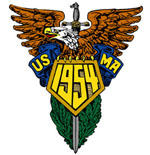 The '54 Crest
The '54 Crest
 General MacArthur stated it would take
General MacArthur stated it would take "at least 10 years" to return Army Football to Respectability
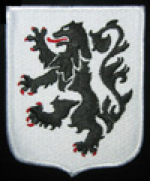 28th Infantry Regiment Black Lion Award is intended to go to the person on his team "who best exemplifies the character of Don Holleder: leadership, courage, devotion to duty, self-sacrifice, and - above all -
28th Infantry Regiment Black Lion Award is intended to go to the person on his team "who best exemplifies the character of Don Holleder: leadership, courage, devotion to duty, self-sacrifice, and - above all - an unselfish concern for the team ahead of himself."
 General George Patton
General George Patton "The Army moves as a team, eats as a team, and fights as a team."
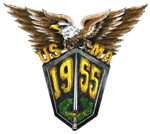 The '55 Crest
The '55 Crest
 They played perhaps Army's Greatest Game. They played perhaps Army's Greatest Game.They were the Team that Gave The Most
 Don Hollender Remember - The Soldiers you will lead Always Come First
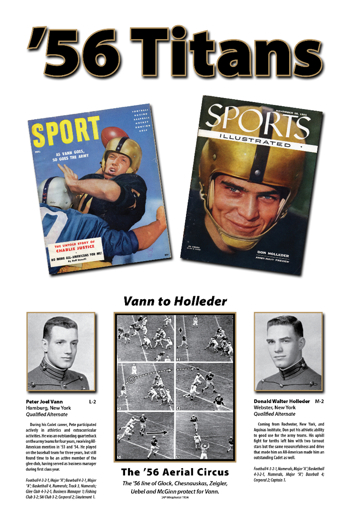 Vann and Holleder Vann and Holleder
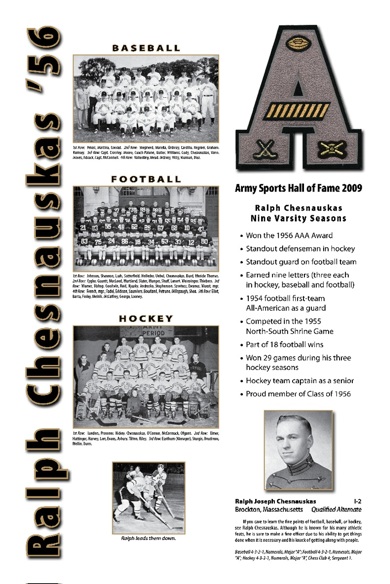 9 Army A's 9 Army A's
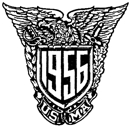 The '56 Crest
The '56 Crest
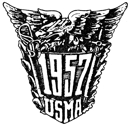 The '57 Crest
The '57 Crest
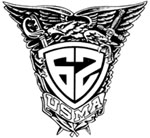 Can Do
Can Do
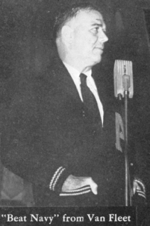 Gen Van Fleet addressing the Corps prior to the Navy Game
Gen Van Fleet addressing the Corps prior to the Navy Game
 Constructed under supervision of Jay Gould "54 and the Ord Dept from a German Rocket Gun captured at Kasserine Pass. First used in the Duke Game.
Constructed under supervision of Jay Gould "54 and the Ord Dept from a German Rocket Gun captured at Kasserine Pass. First used in the Duke Game.
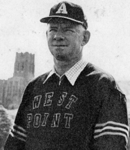 COL "Red" Reeder granted the Cheerleaders Corps Squad status to obtain financial support for their spirit-inducing initiatives.
COL "Red" Reeder granted the Cheerleaders Corps Squad status to obtain financial support for their spirit-inducing initiatives.
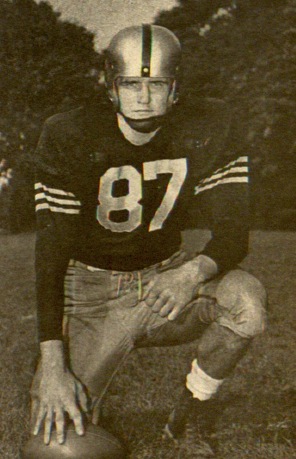 Bob Mischak - - It should be pointed out that Bob was an All American selection, but is not recognized by the Academy as such because of the organization which selected him. Bob Mischak - - It should be pointed out that Bob was an All American selection, but is not recognized by the Academy as such because of the organization which selected him.
 Ubel scores 3 Times against Navy - Vann's facking results in Peter getting tackled - #10 on the ground behind Ubel
Ubel scores 3 Times against Navy - Vann's facking results in Peter getting tackled - #10 on the ground behind Ubel
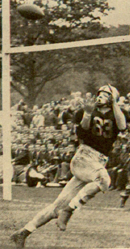 Vann to Sisson
Vann to Sisson
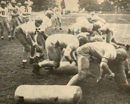 Army's B Squad
Army's B Squad
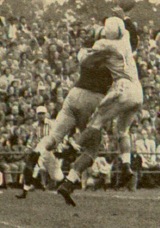 Vann to Mischak. Vann to Mischak.
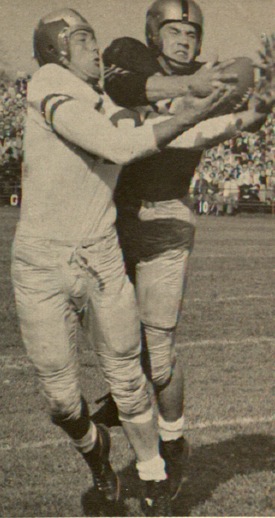 Uebel Intercepts Uebel Intercepts
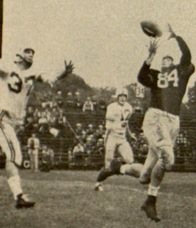 Cody to Don Holleder Cody to Don Holleder
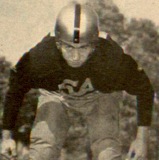 Lasley Lasley
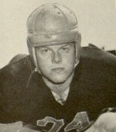 Frank Hicks Frank Hicks
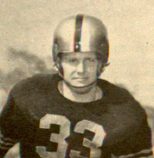 Burd Burd
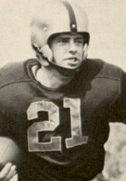 Bill Purdue Bill Purdue
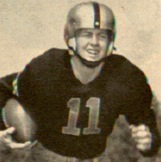 Cody Cody
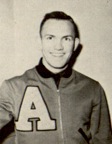 Meador Mgr Meador Mgr
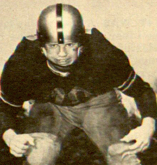 Ron Melnick Ron Melnick
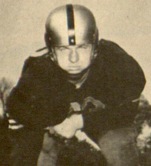 Ralph Chesnauskas Ralph Chesnauskas
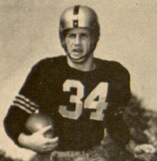 Pat Uebel Pat Uebel
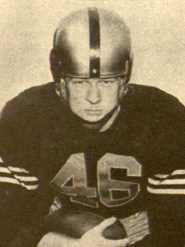 Tommy Bell Tommy Bell
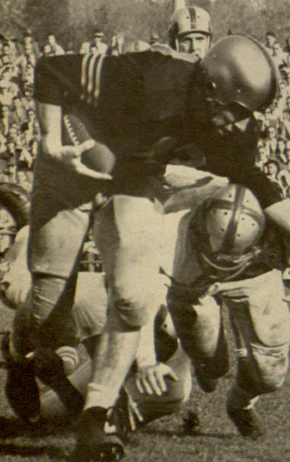 Sisson headed for another score Sisson headed for another score
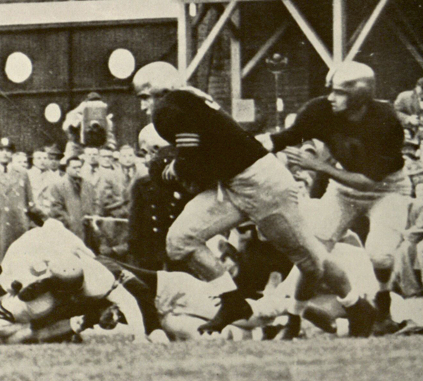 Peter Vann stuffs the ball in Jerry's gut Peter Vann stuffs the ball in Jerry's gut
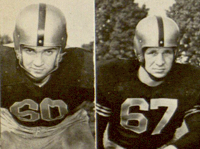 Leroy Lunn & Jerry Lodge Leroy Lunn & Jerry Lodge
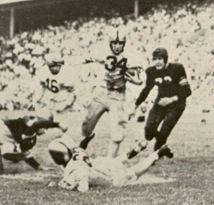 Uebel after taking the handoff from Hagan
Uebel after taking the handoff from Hagan
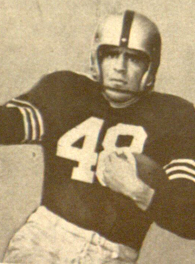 Attaya - Army's Fullback
Attaya - Army's Fullback
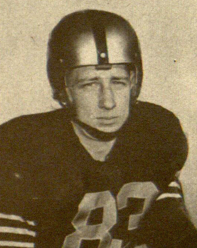 Sisson - one of 3 Great Ends
Sisson - one of 3 Great Ends
 Bob Mischak Bob Mischak
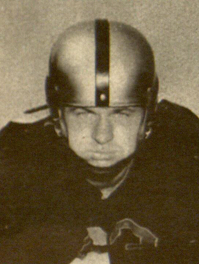 Unknown Unknown
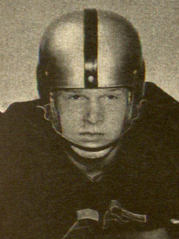 Unknown Unknown
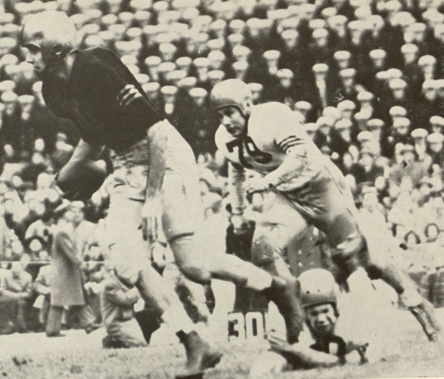 Vann moving out of the pocket
Vann moving out of the pocket
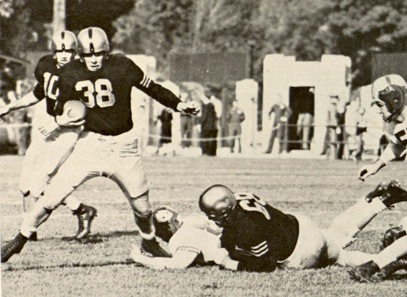 Peter Vann 10, Billy Chance 38, Herdman 68
Peter Vann 10, Billy Chance 38, Herdman 68
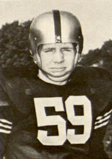 Ken Kramer Ken Kramer
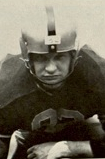 Joe Lapchick Joe Lapchick
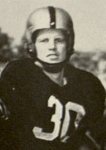 Kirk Cockrell Kirk Cockrell
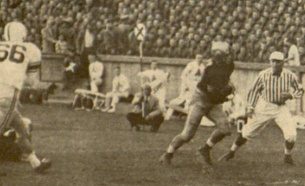 Lodge going down tosses to Paul Schweikert for score. Lodge going down tosses to Paul Schweikert for score.
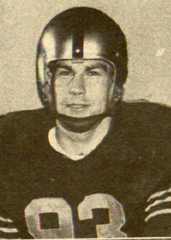 Unknown Unknown
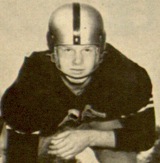 Bob FarrisPlayed the 2d half of the Navy Game blind in one eye. Bob FarrisPlayed the 2d half of the Navy Game blind in one eye.
 Pat Uebel Pat Uebel
 Tommy Bell Tommy Bell
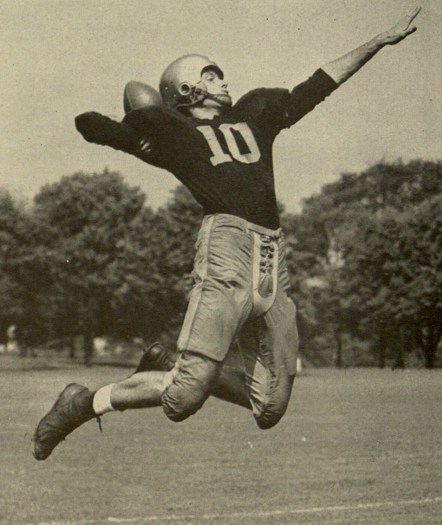 Peter Vann Peter Vann
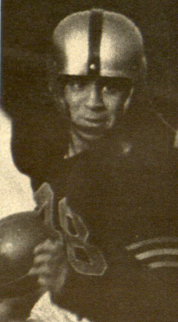 Freddie Attaya Freddie Attaya
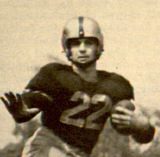 Mike Zeigler Mike Zeigler
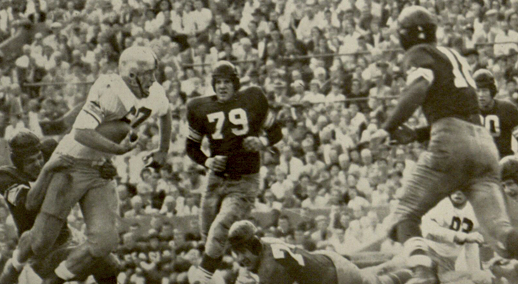 Jerry Lodge wearing #67, playing fullback. Jerry Lodge wearing #67, playing fullback.
 Wynn Wynn
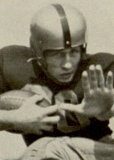 Lowell Sisson Lowell Sisson
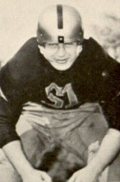 Norm Stephen Norm Stephen
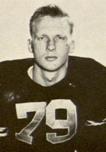 Jack Krause Jack Krause
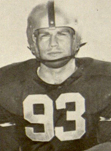 Dick Ziegler Dick Ziegler
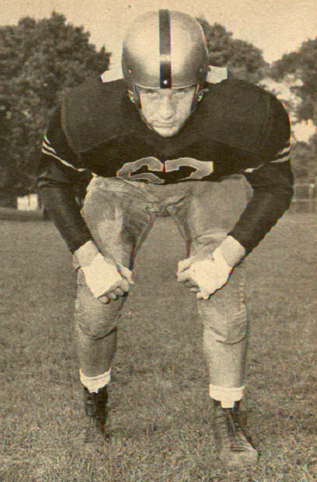 Jerry Lodge Jerry Lodge
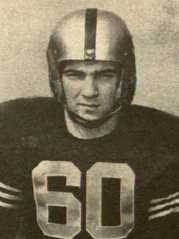 Leroy Lunn Leroy Lunn
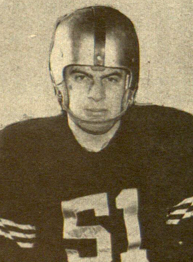 Norm Stephen Norm Stephen
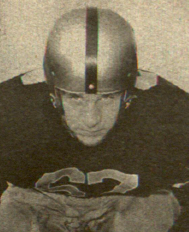 Jerry Lodge Jerry Lodge
 Corps of Cadets for Navy Game Corps of Cadets for Navy Game
 Can Do
Can Do
 General MacArthur stated it would take
General MacArthur stated it would take "at least 10 years" to return Army Football to Respectability
 General George Patton
General George Patton "The Army moves as a team, eats as a team, and fights as a team."
 Don Hollender Remember - The Soldiers you will lead Always Come First
 The '54 Crest
The '54 Crest
 The '55 Crest
The '55 Crest
 28th Infantry Regiment Black Lion Award is intended to go to the person on his team "who best exemplifies the character of Don Holleder: leadership, courage, devotion to duty, self-sacrifice, and - above all -
28th Infantry Regiment Black Lion Award is intended to go to the person on his team "who best exemplifies the character of Don Holleder: leadership, courage, devotion to duty, self-sacrifice, and - above all - an unselfish concern for the team ahead of himself."
 They played perhaps Army's Greatest Game. They played perhaps Army's Greatest Game.They were the Team that Gave The Most
 The '56 Crest
The '56 Crest
 The '57 Crest
The '57 Crest
|
Doc Blanchard
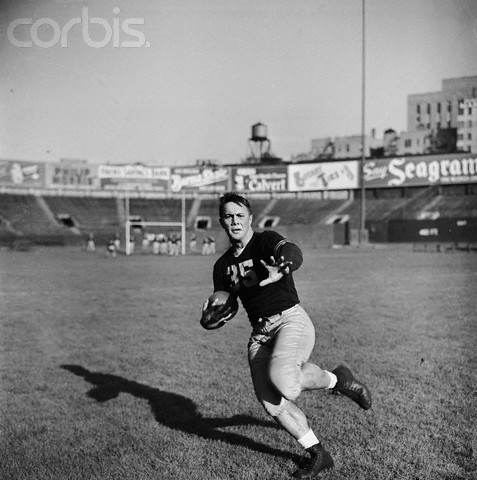
Doc Blanchard 1944
3 Army A's in Football
The sporting public first took notice of Blanchard in the 1944 season, when he starred in Army's 59-0 pasting of Notre Dame, the worst defeat in the school's history. "Blanchard," noted one press account, "employed mainly as a decoy in the Army attack, played a spectacular game, bursting half the eardrums of the 74,437 spectators in the third period with a block that made possible [a] scoring return of a punt." And the New York Times observed Blanchard was "even more poisonous on the defense than he was running the ball."
Blanchard's overall performance stunned Notre Dame coach Ed McKeever who wired back to South Bend: "Have just seen Superman in the flesh. He wears Number 35 and goes by the name of Blanchard."
Doc Blanchard:
The Army War Machine
by David Pietrusza
Dr. Felix Anthony Blanchard, Sr. bestowed three things to his son, 1945 Heisman Trophy winner, "Doc" Blanchard:
-his name
-his nickname, "Doc"
-his love of football
They were not necessarily in that order.
The senior Blanchard (a hefty 240 pounds) starred at fullback at both Tulane and Wake Forest (under the name "Beaulieu," so his father wouldn't know what he was up to) and provided his son and namesake with a lifelong love for football. He took no chances whatsoever on how the boy would turn out, placing miniature footballs in the infant's crib. At age 2 1/2 young "Little Doc" had gotten the message and was cajoling an aunt into holding a football for him to practice kicking.
In high school Blanchard starred for Bay St. Louis, Mississippi's St. Stanislaus Prep (the senior Blanchard was team physician for that squad) and played fullback in New Orleans' Toy Bowl. For a while Little Doc thought of attending Tulane, but finally opted not for Army's that would come later - but for North Carolina, where his mother's first cousin, Jim Tatum, coached the freshman squad. At Chapel Hill Blanchard was a terror both on and off the field. "Once," recalled the team's trainer, "the knocked out two would-be tacklers on the same play." On another occasion, he ripped a steam radiator off the floor, when he became annoyed at a hotel manager.
World War II cut short his North Carolina career. In 1943, at the end of his freshman year, Blanchard tried to enlist in the Navy, but was rejected for poor eyesight (as a boy one eye was damaged when another lad literally threw mud in it) and for being overweight. The Army had no such qualms about Blanchard - or about several million other young men for that matter -- and he joined that branch of the service as a buck private.
Before long, however, Blanchard gained acceptance to West Point, but before he entered the military academy, his father passed away. The move to West Point was a move he had heartily approved, however. "My dad," Blanchard recollects, "always thought that to be successful in college athletics the place to go play was in the Northeast, and I think he was probably right."
The sporting public first took notice of Blanchard in the 1944 season, when he starred in Army's 59 - 0 pasting of Notre Dame, the worst defeat in the school's history. "Blanchard," noted one press account, "employed mainly as a decoy in the Army attack, played a spectacular game, bursting half the eardrums of the 74,437 spectators in the third period with a block that made possible [a] scoring return of a punt." And the New York Times observed Blanchard was "even more poisonous on the defense than he was running the ball."
In that contest, Blanchard was deadly not only to the fighting Irish but also to anyone in his path. One official made the mistake of getting in the way of a Blanchard tackle. Doc bowled him over, dislocating one of the poor man's elbows in the process
"He just happened to be where I was," says Blanchard in his matter-of-fact manner.
Blanchard's overall performance stunned Notre Dame coach Ed McKeever who wired back to South Bend: "Have just seen Superman in the flesh. He wears Number 35 and goes by the name of Blanchard."
God-only-knows what the official with the non-working elbow had to say.
Army Coach Earl "Red" Blaik was never known for his braggadocio, but even he had to admit: "I never saw anybody like Blanchard before....He has the weight of a fullback and the speed of a halfback."
Of course, Doc Blanchard had a little help on that Army team, such as center "Tex Coulter", tackle Al Nemetz, guard Jack Green and quarterback Arnold Tucker. But most significant, of course, was Glenn Davis. As Blanchard barreled through all opposition, earning the nickname "Mr. Inside," (a name bestowed on him by the New York Sun's George Trevor) Davis took a more circuitous route, and became known as "Mr. Outside".
Their styles emphasized different strengths. I was strong in the "legs," Blanchard once observed, "I had good acceleration for my size, good quickness. I wasn't what you would call a speed guy, like Glenn."
Earl Blaik once explained what made Blanchard unique: "Imagine a big bruising fullback who runs one hundred yards in ten seconds flat, who kicks off into the end zone, who punts fifty yards, who can also sweep the flank as well as rip the middle, who catches laterals or forward passes with sure-fingered skill, and who makes his own interference. That's Mr. Blanchard."
"Mr. Inside" and "Mr. Outside" ran roughshod over their opponents. Red Blaik gushed about his Touchdown Twins, "I doubt if any team ever had two such players in the backfield at the same time."
Army was an absolute powerhouse. In its first six 1945 contests, it outscored opponents 271 to 33. For the season, the Black Knights captured the Lambert Trophy as the best college team in the East.
Army went 27-0-1 in 1944-46, Blanchard's three seasons at the Point. In 1944 and 1945 the going was so easy, Blaik had plenty of opportunities to use his substitutes - and took every one. Army's first and second teams averaged just eighteen minutes per game, and even the fourth stringers got plenty of work.
Of course, being a service team in an era when college squads were being stripped of their able-bodied personnel was a decided advantage to the Military Academy. "Sure they had an advantage," Blanchard readily admits, "They had access to all the people in the service, and all the people that were over 18 were in the service. So they were just drafting people out of the service."
When Army beat Navy 23-7 in 1945, Blanchard ("205 pounds of charging wild buffalo," as one account of the game described him) allegedly felt a special someone was there to help: his late father. "He was there...," a sentimental reporter quoted Blanchard as saying, "I could feel him patting me on the back after each play and saying, 'Hit like your daddy did, son.'"
It's a good story, a darn good story. There's only one problem with it: it's just not a accurate story.
"Well, I've read that [story] too," says Blanchard, "I don't recall it. I'll say it's not exactly true."
Blanchard, however, could have used a little extra assistance in that contest. All season long he had been engaged in a good-natured touchdown rivalry with Davis. Going into the game, the last of the campaign, the Touchdown Twins were, er, identical, tied sixteen-all in that category. Against the Midshipmen, Davis TD'ed twice; Blanchard, three times.
That may have been enough to put him over the top in Heisman balloting. When the votes were announced in December 1945, Blanchard outpointed his teammate 860 to 638. Far back were St. Mary's Squirmin' Herman Wedemeyer (152), Alabama's Harry Gilmer (132), Notre Dame's Frank Dancewicz (56), Ohio State's Warren Amling (42), and Indiana's Pete Pihos (38).
Blanchard was the first junior to win the Heisman ("in those days they sent the news via Western Union; I got a telegram"), and also captured the Maxwell and Touchdown Club trophies as the year's best college player. He and Davis even jointly made the November 12, 1945 cover of Time magazine. Blanchard, Davis and their teammates, Coulter, Green, and Nemetz, each achieved All-American status.
Temple coach Ray Morrison marvelled at Blanchard's remarkable 1945 season: "Doc Blanchard was a colossus who, experts insist, is the fullback of all time. Blanchard turned loose more raw power against Army opponents than has been seen since the days of Bronko Nagurski. In addition, Blanchard ran with greater speed and finesse than even the great Nagurski."
Unlike a major league pitcher who seemingly can recall every pitch he ever threw to every batter, Blanchard doesn't wallow in past glories. When asked about the most memorable play in his Heisman season, he harrumphs: "You're stressing me now. Hell, you're talking to a guy who can't remember what he had for breakfast. You want me to remember the most memorable play of fifty years ago? C'mon. I don't have one that I can remember."
But he does have a few games he savors: "Navy was the big game, although Notre Dame in 1944 was a big time game for us because of the history of the series' won-lost record and all that stuff."
And there was a moment in Blanchard's West Point career that transcended even a Heisman Trophy: being part of the honor guard at President Franklin Roosevelt's funeral at nearby Hyde Park, New York.
One might think Blanchard's status as the nation's premier college football star might have played a part in his selection. It didn't. It was more a matter of which unit he was assigned to at the Academy. "They picked some people from West Point to go over and attend," says Blanchard, "The group that I was assigned to went, so I got to go."
Blanchard's 1946 senior season was marred by torn knee ligaments he suffered in that campaign's first game. But he recovered to run for 613 yards (a 5.1 average)and score ten touchdowns and once again be designated an All-American. He finished his career with 38 touchdowns and 1,666 yards rushing. Still on the squad, was Glenn Davis-who after two runner-up finishes - finally captured a Heisman for himself.
Blanchard had his eye on a pro career, but the War Department vetoed that idea. He remained in service until 1969, serving as a fighter pilot in both Korea and Vietnam.
http://www.collegefootball.org/famersearch.php?page=1&submitted=1&school=Army&sortby=school
http://www.sccotton.org/blanchard.htm
http://www.heisman.com/winners/d-blanchard45.html
Football's Greatest Decade - - by Bernie Mcarty - http://www.la84foundation.org/SportsLibrary/CFHSN/CFHSNv01/CFHSNv01n1b - - see page 5
This writer believes West Point 1945 is the greatest team of all time. The 1944 Army team may actually deserve that title, but it was never tested. Army was also undefeated in 1946, 1948 and 1949.
Army's top stars during 1945-1949 were the effulgent "Touchdown Twins", Glenn Davis and Doc Blanchard, Arnold Tucker, Arnold Galiffa, Rip Rowan, Bobby Jack Stuart and Gil Stephenson in the back-field, and up front" Joe Steffy", Art Gerometta, Jack Green, "Bill Yoemans", Joe Henry "Tex" Coulter,Al Nemetz, and the sterling end duo of Hank Foldberg and Barney Poole.
In 1945 the Newspaper Enterprise Assoc. simply picked the entire Army team as its All-American team, stating no group of All-Americans could beat the Cadets. Only a world war could have brought together such a collection of players to one institution. But it took the coaching genius of Col. Earl Blaik to mold the players into a cohesive unit. In truth, Navy personnel was equal to Army's on an individual basis. The Middies never jelled as a team, however.
The 1951 Army outfit might have been as good as the 1945 Cadets, but the infamous cribbing scandal wiped out the team.
|
|


 General MacArthur stated it would take
General MacArthur stated it would take  28th Infantry Regiment
28th Infantry Regiment 
 They played perhaps Army's Greatest Game.
They played perhaps Army's Greatest Game.


























































 General MacArthur stated it would take
General MacArthur stated it would take 


 28th Infantry Regiment
28th Infantry Regiment  They played perhaps Army's Greatest Game.
They played perhaps Army's Greatest Game.



































 Cadet Barracks
Cadet Barracks






















